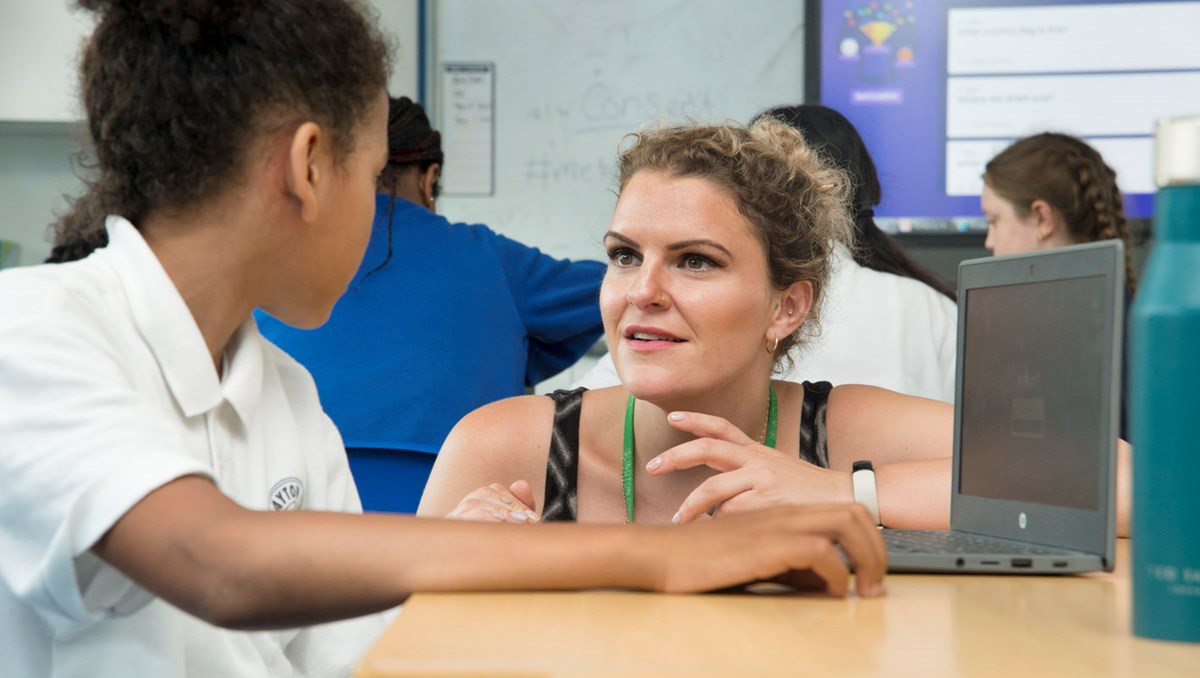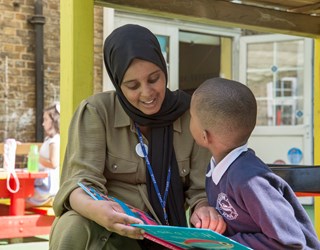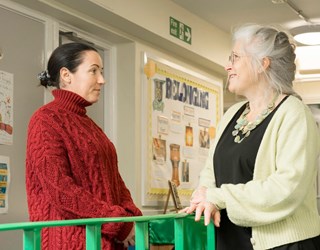Teaching: the new reality
Teaching has changed. This is the new reality.
Our new report shines a light on working in education today. Higher levels of emotional and practical support for pupils and colleagues leave many emotionally exhausted.
Research / 3 mins read

Our new report, "Teaching: the new reality," sheds light on the critical role of teachers and their expanding responsibilities in modern education.
The research, carried out in conjunction with YouGov, shows that as the roles of teachers and education staff expand the added responsibilities affect their mental health and wellbeing, which ultimately has an impact on children and young people’s education.
Our survey of over 3,082 education staff found that in 2022:
62%
reported offering increased amounts of emotional support to pupils or students since the start of the COVID-19 pandemic
62%
reporting that pupil and student behaviour takes up more time
50%
reported being more likely to be supporting staff and colleagues with their emotional wellbeing
48%
reported increased pastoral duties to support the welfare of pupils
45%
offer more support vulnerable pupils and their families
This occurs in the wider context of a cost of living crisis and rising mental health challenges among children and young people. While teachers and education staff are rising the new challenges, a significant number report feeling under prepared to take on these new responsibilities. Among those doing more of these specific roles:
- 32% said they were not prepared for dealing with difficult pupil behaviour
- 34% said they were not prepared for offering emotional support for staff/colleagues
- 39% said they were not prepared for supporting vulnerable pupils and their families
- 81% of senior leaders and 70% of school teachers stated their mental health and wellbeing were negatively impacted by additional responsibilities
- 83% of all senior leaders, 70% of all school teachers describing themselves as somewhat or very emotionally exhausted
The research is supported by a collection of first-hand accounts from a range of school staff who share their experiences and the challenges they face in the current educational landscape.
The job that teachers are currently trained for does not match the daily reality. If we continue in this way, we will burnout a generation of talented and dedicated staff, and future generations of children and young people will be even worse off for it.Sinéad Mc Brearty, Chief Executive of Education Support
This report offers recommendations for Government and policymakers that can benefit the education system and future generations of children and young people:
- It’s time to decide whether schools are the front line of children’s services, or whether they are specialists in education. If we cannot provide this level of clarity, we should plan for increased attrition from the profession and even lower recruitment into ITT.
- There must be well resourced services for children and families.
- Retention strategies need to be revisited in light of the new reality set out in this report and the attrition rate in the sector.
- Training frameworks should be updated to reflect the new reality of life in schools
- Schools in the least well-resourced areas of the four nations experience these issues more intensely than elsewhere.
- Policymakers need to listen closely to teachers and leaders currently working in ordinary (not extraordinary) schools, to ensure that policies are grounded in reality.
Download the full report below.
Download the report
This is a brilliant and exceptionally timely report which clearly identifies the profound change that has taken place in the role of the teacher over the past decade and its impact on individuals as well as the profession.Peter Fonagy, Chief Executive, Anna Freud National Centre for Children and Families




















